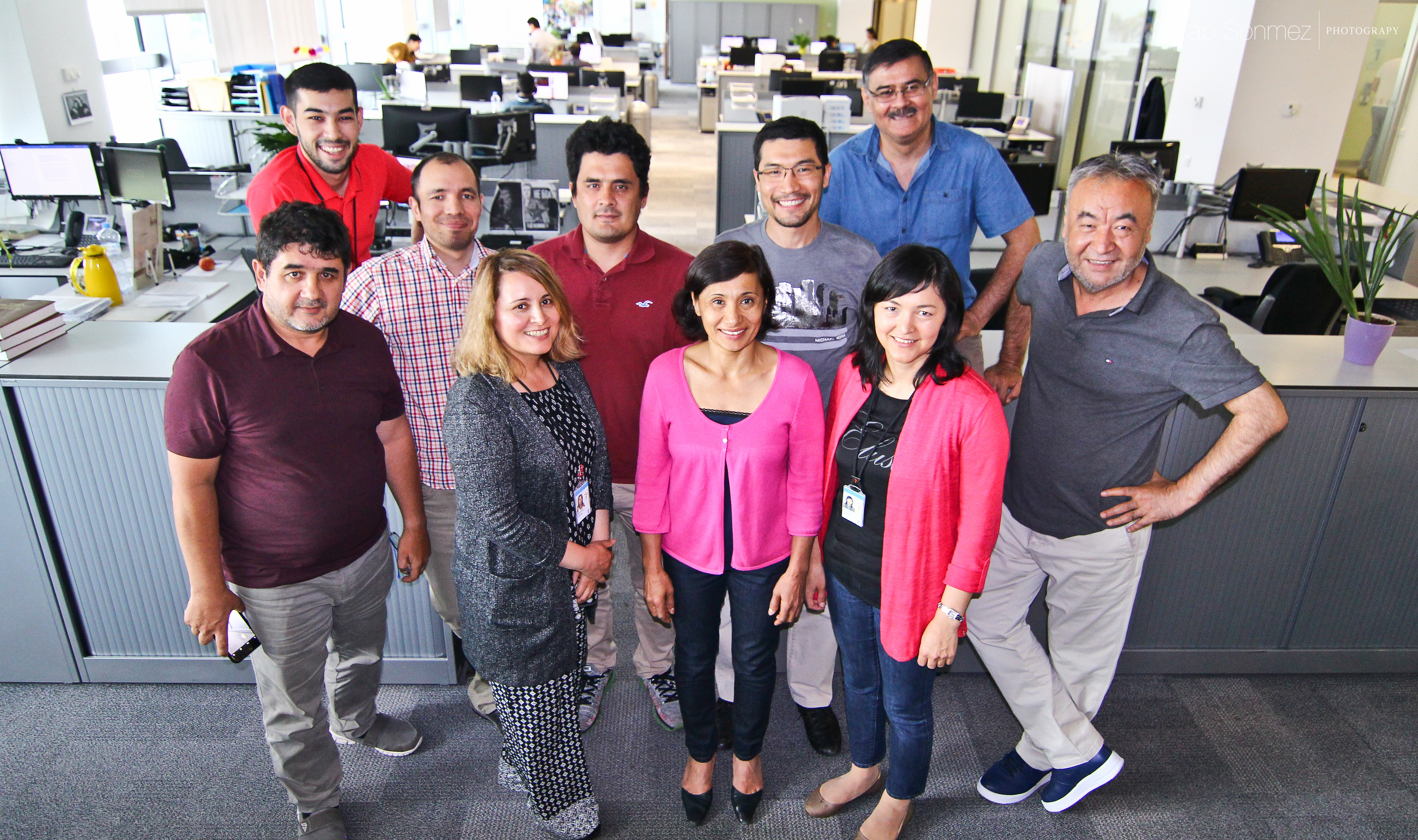Uzbek Service, 2017 winner

In the years since 2005, when accreditation of RFE/RL journalists and its Tashkent Bureau were refused, and local access to the ozodlik.org website was blocked in retaliation for unflinching coverage of the massacre that year in the city of Andijon, RFE/RL’s Uzbek Service—known locally as Radio Ozodlik has harnessed new technology and innovation to turn one of the world’s most notoriously closed societies inside out.
After spotting the potential for direct, two-way interaction with the audience that was created by social media, the Service moved quickly to adapt to new platforms that allow its audience to bypass blocks and censorship. The service now has over 1,000,000 subscribers across several social media platforms (including Facebook and Odnoklassniki), and more than 125,000 subscribers on YouTube—far surpassing the digital audience of state-approved outlets and other Uzbek-language commercial and international media. With a 12-month average of over 6 million views each month on YouTube of both video and audio content, the Service provides its audiences in Uzbekistan a vital means to bypass the authoritarian Uzbekistan government’s suppression of access to traditional web content.
Ozodlik’s journalistic staff has assembled a massive network of volunteer citizen journalists who communicate with our staff via encrypted messenger apps on their phones; residents in even the most remote rural villages in Uzbekistan turn to Ozodlik to inform about breaking news, publicize the overreach of corrupt local officials, reveal failures to deliver public goods, or document their everyday suffering or joy.
- In August and September 2016, 20.7 million pages of content were accessed by visitors to org, which became a go-to source for the latest news concerning the failing health of Uzbek President Islam Karimov. Based on its sources within Uzbekistan, the Service was able to report on Karimov’s hospitalization on August 27—prior to the official announcement by the Uzbek Cabinet of Ministers. Yahoo News, Foreign Policy, Reuters, were among the many international news sources citing RFE/RL coverage of Karimov’s illness. Similarly, the online network allowed Ozodlik to report on numerous signals of Karimov’s death prior to the official government announcement on September 2.
- In late September 2016, a couple in a rural village in southern Uzbekistan lost their first baby, following a difficult delivery. Horrified to discover all the doctors at their clinic had been forced to pick cotton in the fields as their baby slowly died in the empty hospital without treatment, they turned to Ozodlik, using encrypted messaging to share evidence that Ozodlik reporters carefully verified and shared the story of the grieving parents with the whole country so that—honoring theirs wishes—others might be spared the same grief.
- In March 2017, Uzbek security agencies launched nationwide inspections and raids of nursery schools after Ozodlik published local testimony about multiple cases of child abuse and intimidation in nursery schools in the southern province of Surkhondaryo, as well as of nursery schools serving as brothels after hours.
- In April 2017, an Ozodlik report exposing a widely-criticized general knowledge test administered to prospective Uzbek labor migrants to South Korea led to the dismissal of Foreign Migration Agency Director Ulugbek Nazarov and the invalidation of tens of thousands of examinations.
Most of Ozodlik’s journalists are banned from entering their homeland, have had property seized by the government, and have relatives that have been persecuted and imprisoned by Uzbek authorities.
The innovative use of new digital and social media technologies, paired with the risks taken by courageous stringers denied accreditation by the Uzbek government and the sacrifices made by the Ozodlik journalists have allowed RFE/RL’s Uzbek Service not only to break stories from around the country each day but also to give Uzbekistan’s citizens a powerful means to speak truth to power in a country Freedom House perennially ranks as one of the least free societies in the world.
